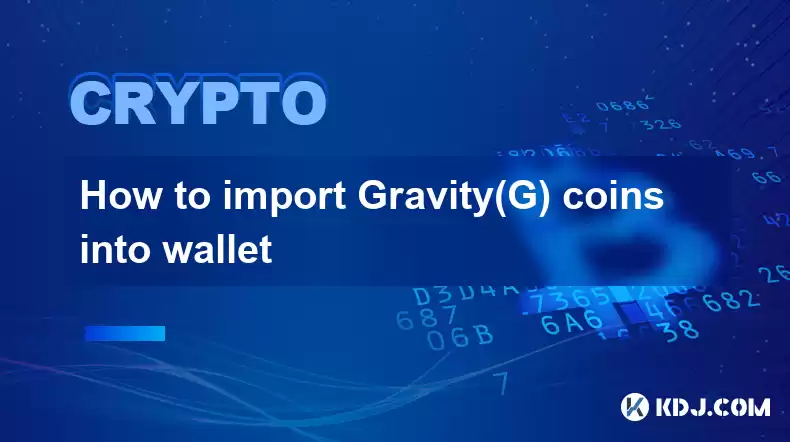-
 Bitcoin
Bitcoin $115000
0.12% -
 Ethereum
Ethereum $3701
4.50% -
 XRP
XRP $3.081
2.99% -
 Tether USDt
Tether USDt $0.0000
-0.01% -
 BNB
BNB $767.9
1.45% -
 Solana
Solana $169.5
3.13% -
 USDC
USDC $0.9999
0.01% -
 Dogecoin
Dogecoin $0.2106
4.30% -
 TRON
TRON $0.3334
1.62% -
 Cardano
Cardano $0.7564
2.54% -
 Stellar
Stellar $0.4165
0.76% -
 Hyperliquid
Hyperliquid $38.75
0.25% -
 Sui
Sui $3.593
3.00% -
 Chainlink
Chainlink $17.08
3.59% -
 Bitcoin Cash
Bitcoin Cash $573.6
4.35% -
 Hedera
Hedera $0.2508
-0.84% -
 Avalanche
Avalanche $23.07
6.46% -
 Ethena USDe
Ethena USDe $1.001
-0.02% -
 Litecoin
Litecoin $120.8
8.17% -
 UNUS SED LEO
UNUS SED LEO $8.943
-0.32% -
 Toncoin
Toncoin $3.400
-5.60% -
 Shiba Inu
Shiba Inu $0.00001255
1.54% -
 Uniswap
Uniswap $9.908
6.32% -
 Polkadot
Polkadot $3.718
2.10% -
 Monero
Monero $303.0
-0.74% -
 Dai
Dai $0.9999
-0.02% -
 Bitget Token
Bitget Token $4.392
0.91% -
 Cronos
Cronos $0.1403
6.31% -
 Pepe
Pepe $0.00001076
1.13% -
 Aave
Aave $267.2
1.80%
How to import Gravity(G) coins into wallet
To safely manage your Gravity (G) coins, consider reputable wallets like those maintained by Legder or Trezor, ensuring robust security features and user-friendly interfaces.
Jan 02, 2025 at 02:44 pm

Key Points:
- Understanding the concept of cryptocurrency wallets
- Different types of cryptocurrency wallets
- Choosing the right wallet for Gravity (G) coins
- Step-by-step instructions on importing G coins into a compatible wallet
Introduction:
Gravity (G) is a blockchain-based project focused on building scalable decentralized infrastructure. Its G coins are an integral part of the Gravity ecosystem, used for various purposes such as staking, governance, and transaction fees. To manage and store G coins securely, users need to use a compatible cryptocurrency wallet. This article provides a comprehensive guide on how to import Gravity (G) coins into a wallet, including selecting the right wallet, step-by-step import instructions, and frequently asked questions.
Choosing the Right Wallet for Gravity (G) Coins:
The first step is to choose a wallet that supports Gravity (G) coins. Several reputable wallets offer G coin support, each with its unique features and security measures. Here are some factors to consider when selecting a wallet:
- Security: Look for wallets with robust security features such as two-factor authentication, encryption, and hardware security modules (HSMs).
- Convenience: Choose wallets that provide user-friendly interfaces, mobile compatibility, and multi-currency support.
- Flexibility: Consider wallets that offer multiple options for accessing funds, such as web, mobile, and desktop applications.
- Reputation: Opt for wallets developed and maintained by reputable companies with a proven track record in the cryptocurrency industry.
Step-by-Step Instructions on Importing G Coins into a Wallet:
Once you have selected a compatible wallet, you can proceed with the import process:
- Create a new wallet address.
- Log in to your wallet application.
- Locate the "Receive" or "Import" option.
- Enter the Gravity (G) coin address provided by your exchange or another source.
- Review and confirm the import details carefully.
- Validate the transaction.
Frequently Asked Questions (FAQs):
- What is a cryptocurrency wallet?
A cryptocurrency wallet is a software or hardware device that securely stores the public and private keys used to manage cryptocurrencies. - What are the different types of cryptocurrency wallets?
There are various types of cryptocurrency wallets, including software wallets (web, mobile, and desktop) and hardware wallets. - Why do I need a cryptocurrency wallet to import G coins?
A cryptocurrency wallet provides a secure environment to store and manage your G coins, protecting them from unauthorized access and theft. - Can I import G coins from any source?
Yes, you can import G coins from centralized exchanges, decentralized exchanges (DEXs), or other compatible wallets. - How long does it take to import G coins into a wallet?
The import process typically takes a few minutes to complete, depending on network congestion and wallet performance. - What should I do if I encounter any issues importing G coins?
Check the transaction details carefully, ensure you are using the correct wallet address, and contact your wallet provider or the G coin exchange for assistance if necessary.
Disclaimer:info@kdj.com
The information provided is not trading advice. kdj.com does not assume any responsibility for any investments made based on the information provided in this article. Cryptocurrencies are highly volatile and it is highly recommended that you invest with caution after thorough research!
If you believe that the content used on this website infringes your copyright, please contact us immediately (info@kdj.com) and we will delete it promptly.
- Crypto Airdrops: Your August 2025 Guide to Free Tokens & Opportunities
- 2025-08-05 13:45:13
- Luxury Dining Reimagined: St. Regis Singapore & Marriott's Culinary Celebration
- 2025-08-05 13:45:13
- Fancy Farm Picnic: A Sneak Peek at the 2026 US House Race
- 2025-08-05 13:50:12
- Cardano Price, ADA Forecast & Ethereum Price: What's the Buzz?
- 2025-08-05 13:50:12
- Velo Universe, DEX, and DeFi Security: Navigating the Future of Decentralized Trading
- 2025-08-05 09:25:13
- Bitget Wallet Revolutionizes Solana with Gas-Free Transactions: A New Era for DeFi
- 2025-08-05 09:25:13
Related knowledge

What is Chainlink (LINK)?
Jul 22,2025 at 02:14am
Understanding Chainlink (LINK): The Decentralized Oracle NetworkChainlink is a decentralized oracle network designed to bridge the gap between blockch...

What is Avalanche (AVAX)?
Jul 22,2025 at 08:35am
What is Avalanche (AVAX)?Avalanche (AVAX) is a decentralized, open-source blockchain platform designed to support high-performance decentralized appli...

What is Polkadot (DOT)?
Jul 19,2025 at 06:35pm
Understanding the Basics of Polkadot (DOT)Polkadot (DOT) is a multi-chain network protocol designed to enable different blockchains to transfer messag...

What is Litecoin (LTC)?
Jul 23,2025 at 11:35am
Overview of Litecoin (LTC)Litecoin (LTC) is a peer-to-peer cryptocurrency that was created in 2011 by Charlie Lee, a former Google engineer. It is oft...

What is Monero (XMR)?
Jul 21,2025 at 10:07am
What is Monero (XMR)?Monero (XMR) is a decentralized cryptocurrency designed to provide enhanced privacy and anonymity for its users. Unlike Bitcoin a...

How to add indicators to Ethereum chart on TradingView?
Jul 19,2025 at 07:15am
What Is an Ethereum Chart on TradingView?The Ethereum chart on TradingView is a visual representation of the price movement of Ethereum (ETH) over a s...

What is Chainlink (LINK)?
Jul 22,2025 at 02:14am
Understanding Chainlink (LINK): The Decentralized Oracle NetworkChainlink is a decentralized oracle network designed to bridge the gap between blockch...

What is Avalanche (AVAX)?
Jul 22,2025 at 08:35am
What is Avalanche (AVAX)?Avalanche (AVAX) is a decentralized, open-source blockchain platform designed to support high-performance decentralized appli...

What is Polkadot (DOT)?
Jul 19,2025 at 06:35pm
Understanding the Basics of Polkadot (DOT)Polkadot (DOT) is a multi-chain network protocol designed to enable different blockchains to transfer messag...

What is Litecoin (LTC)?
Jul 23,2025 at 11:35am
Overview of Litecoin (LTC)Litecoin (LTC) is a peer-to-peer cryptocurrency that was created in 2011 by Charlie Lee, a former Google engineer. It is oft...

What is Monero (XMR)?
Jul 21,2025 at 10:07am
What is Monero (XMR)?Monero (XMR) is a decentralized cryptocurrency designed to provide enhanced privacy and anonymity for its users. Unlike Bitcoin a...

How to add indicators to Ethereum chart on TradingView?
Jul 19,2025 at 07:15am
What Is an Ethereum Chart on TradingView?The Ethereum chart on TradingView is a visual representation of the price movement of Ethereum (ETH) over a s...
See all articles

























































































